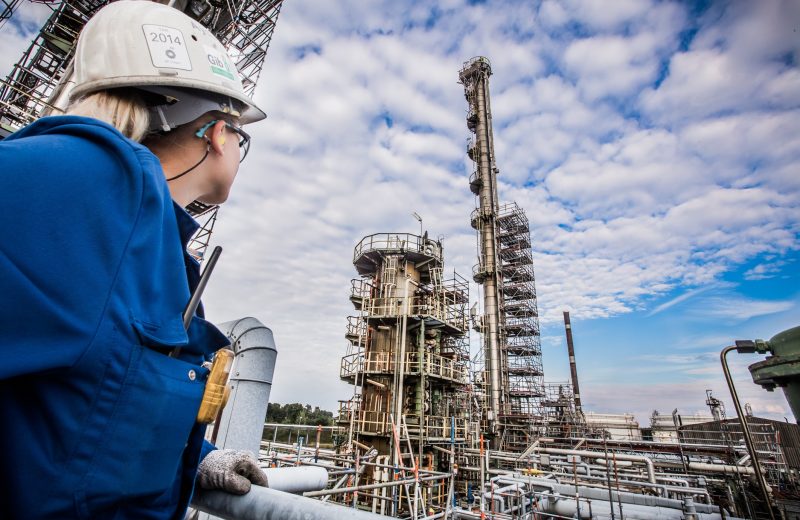bp secures UK Defence Standard for SAF co-processing up to 30% blend

Mitarbeiterin Yasemin Aydin mit Blick auf Arosolvananlage, BP Lingen, Foto: Kilian Westkamp (Konvex-Media)
Energy major bp announced that it has successfully received Defence Standard from the UK Ministry of Defence for co-processing sustainable aviation fuel (SAF) with up to 30% renewable hydroprocessed esters and fatty acids (HEFA) feedstock concentration, a significant increase from the current limit of 5%.
“Defence Standard approval for co-processing SAF is a significant milestone for the industry, and I’d like to thank our partners for their support and input in achieving this. Co-processing produces high-quality fuel that meets stringent aviation standards, while helping to increase the volume of SAF available to customers,” said Federica Berra, senior vice president, Air bp.
bp said that the standard was achieved through collaboration with industry stakeholders, including OEMs, the International Air Transport Association (IATA), fuel producers and airline companies, to help lower lifecycle carbon emissions in the aviation sector.
“This is a long-awaited and welcome development that will bring immediate results. Co-processing is possible with only limited additional capital investments, and it should be maximized — the example of bp and the UK Ministry of Defence is one we wish many countries and SAF producers will follow,” said Marie Owens Thomsen, IATA senior vice president sustainability and chief economist.
This achievement allows bp and other fuel producers to accelerate SAF production at higher concentrations using existing refinery process units. Refinery co-processing is a crucial step towards reducing aviation industry emissions. bp already produces SAF via co-processing at its refineries and plans to increase its renewable feedstock content from 2025 onwards.
bp said the standard was achieved as a result of a three-year programme at the company’s Bochum technology centre, utilising pilot plant and analytical testing facilities to develop these capabilities.
UK Defence Standards are a series of standardized guidelines and technical requirements developed by the UK Ministry of Defence (MoD). They ensure the quality, reliability, and interoperability of materials, products, and systems used in the UK defence sector.
The UK’s Defence Standard specifies the requirements for one grade of kerosene type aviation turbine fuel intended primarily for use in military aircraft gas turbine engines and differs from F-35 (JET A-1) in respect of a mandatory requirement for fuel system icing inhibitor (FSII) and lubricity improving additive (LIA). Fuel provided to this Standard shall possess satisfactory performance and properties when used in appropriate aircraft or engines operated by the Crown.
